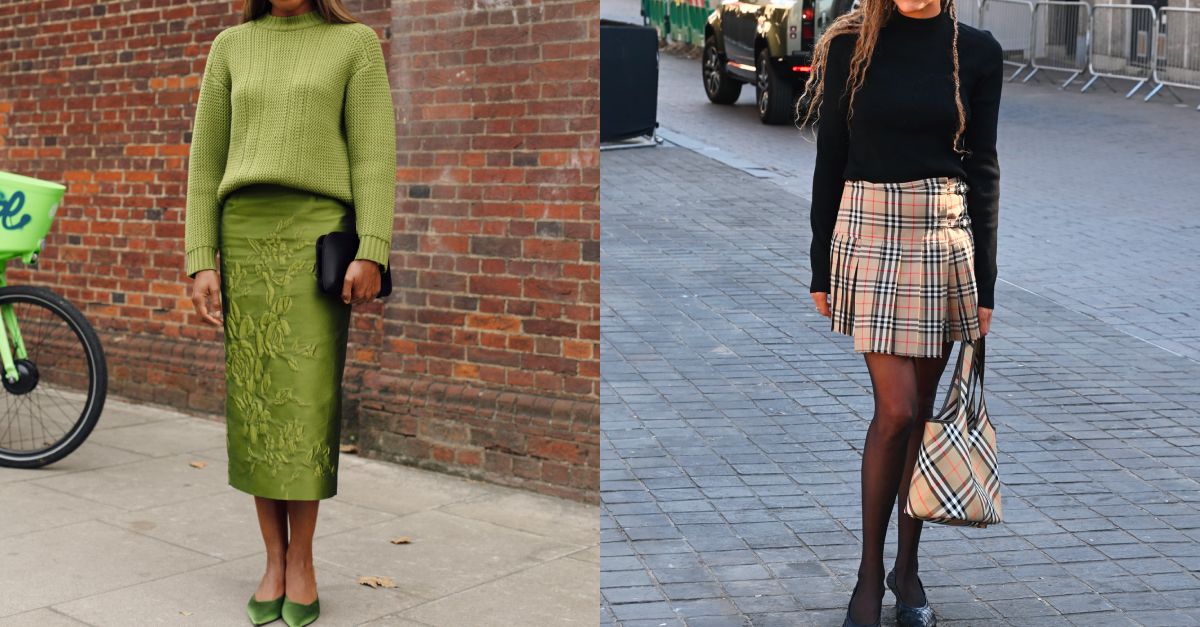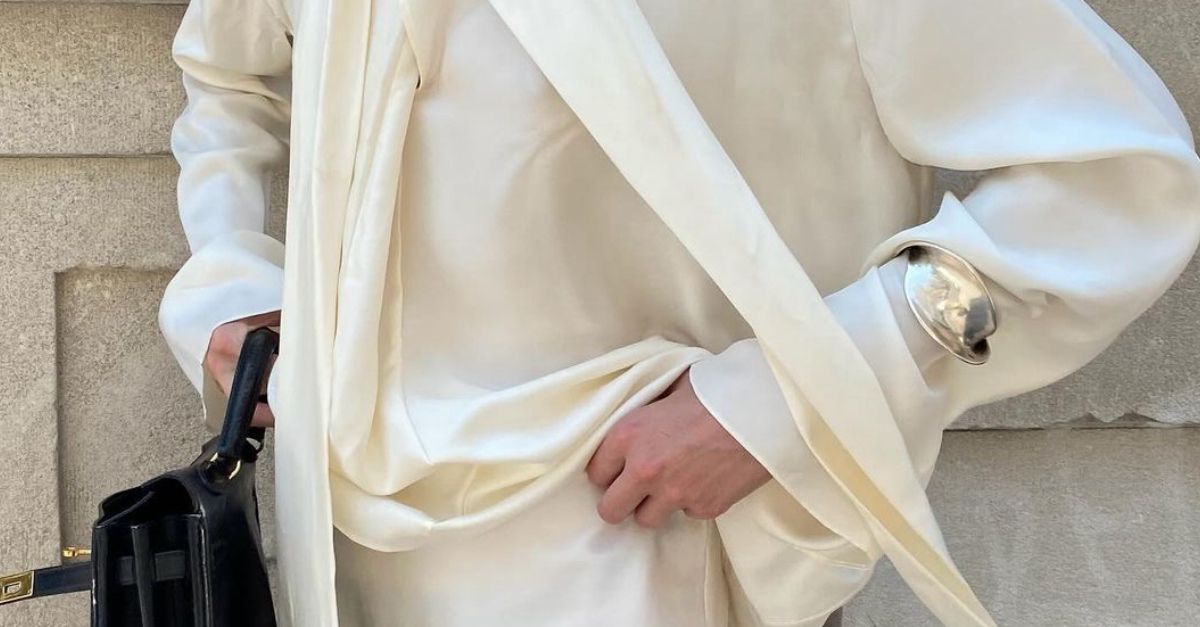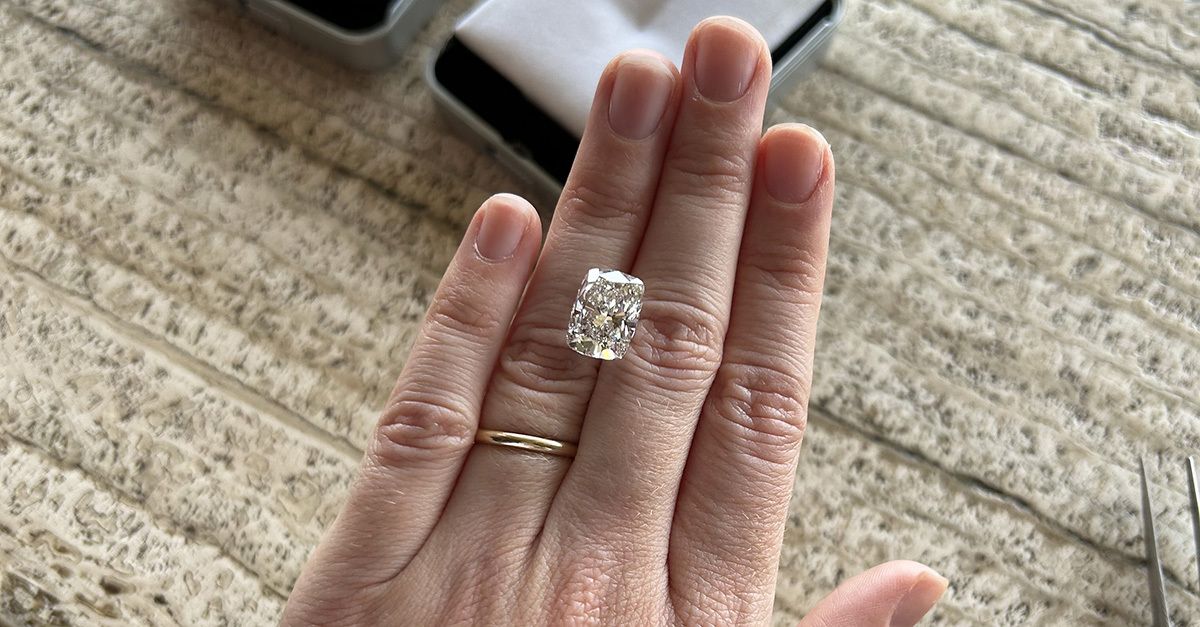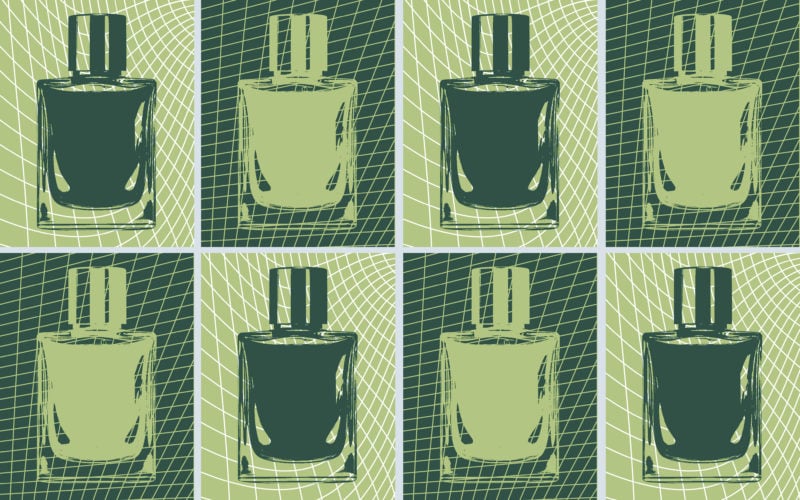One writer explores the many ways technology can deepen how we experience scents.
Perfume has always existed at the intersection of science and art. A balance of extracted oils, aroma compounds, fixatives and solvents, fragrance formulation involves subtle tweaks and changes until the perfect ratio of notes is achieved. But if perfume creation is already a science, what does the rise of artificial intelligence (AI) mean for the future of the industry?
After all, the science of scent is about more than just making things smell nice. Take the aromachology facet of the fragrance industry. Aromachology is the study of how scents affect human psychology and behaviour, and it examines how fragrance can evoke emotions and memories and even influence actions and responses. (The scent of lavender, for example, brings about a sense of calm, while citrus can offer an invigorating boost.) This strong scent-memory link is due to our brain’s anatomy. When it comes to our other senses (taste, touch, sight and sound), sensory information is received in the thalamus, near the centre of the brain. Smell, however, takes a shortcut, bypassing the thalamus and heading straight to the olfactory bulb at the front of the brain. This direct route is why scents trigger immediate vivid memories and evoke strong reactions like nostalgia or comfort. In fact, research shows that nearly 75 per cent of our everyday emotions are linked to scent.
Given the immense power that smell holds, a growing number of brands are using AI tools to provide customers with bespoke fragrances that offer the most precise, personalized creations ever. Digital perfume house No Ordinary Scent uses an algorithm called Emotiontech to create scents based on meaningful memories. Customers feed the algorithm with emotionally charged images (like snaps from past vacations, weddings or birthday parties), and it extracts emotion tags from the images and links them to fragrance notes, developing a custom formula. “Instead of you having one signature scent for a lifetime, AI can allow your fragrances to reflect who you are today,” says Sandra Kinnmark, CEO of No Ordinary Scent. She likens it to building a “fragrance wardrobe” that highlights your personality and grows and evolves as you do.
“It’s crucial to strike a balance between technology and human creativity.”
But can technology ever replace human touch in scent creation? “It’s crucial to strike a balance between technology and human creativity,” says Johanna Monange, founder of fragrance brand Maison 21G. “AI should amplify the creative process rather than replace it. There’s a risk of homogenization if AI algorithms are used excessively, which could result in a loss of diversity and uniqueness in fragrances.”
Human perfumers bring intuition and artistic sensibility to the creation of new fragrances. In order to produce scents that are fresh and innovative, AI must be able to provide data-driven insights without stepping on perfumers’ toes and restricting their creative processes. After all, perfumers bring a lifetime of understanding of nuanced aspects of perfumery, such as culture and history, allowing for deeper meaning and resonance to come through in their creations.
There are, of course, upsides to using AI in fragrance creation. At the forefront of many AI-driven fragrance innovations is wellness. Wearable-tech brand eScent is developing a wearable AI-powered device to promote the mental well-being of users. The system detects when there is an increase in stress and dispenses a desired scent to the user’s device (smart garment, button or jewellery), improving their mental state, explains Dr. Jenny Tillotson, the brand’s founder. And then there’s IFF, a chemical-manufacturing company whose scents promote emotional, cognitive and physical health benefits, such as mindfulness and self-confidence.
AI also plays a role in sustainable fragrance formulation, from enhancing efficiency to reducing waste. As pretty as our perfumes look on bathroom counters, eventually they get tossed, oftentimes unfinished. By diffusing fragrance into a device such as eScent’s, not only is bottle waste reduced but the highly controlled release of materials has a much lower ethanol proportion, thus lowering the amount of “wasted” scent being spritzed into the atmosphere and ultimately reducing a fragrance’s carbon footprint. “With AI, we can create fragrances with a higher rate of success, minimizing the need for multiple iterations,” says Monange. “This leads to a reduction in the consumption of raw materials and energy.”
Custom-fragrance brand Noteworthy subscribes to a “Try before you buy” philosophy. Customers take a Fragrance Finder quiz, answering questions about their personality, life experiences and individual preferences. Based on the responses, four curated fragrance samples are created for them to try before they purchase a full-size bottle, explains Ashley Boyce, co-founder of Noteworthy. “Ultimately, all these AI tools are being used to raise the bar when it comes to the perfume experience and better meet customers’ expectations,” she says. “But it’s up to each individual to choose a fragrance they love and that works for them and their body chemistry; this is something that AI really can’t replace — it can only complement the experience.”
As AI advances in all facets of our daily lives, it will continue to play a bigger role in scent creation and likely become part of the new formula for a fragrance’s success. But fragrance is highly subjective, personal and nuanced. And while AI can be a valuable tool in its creation, formulating scents that are truly unexpected and innovative requires a human touch that technology can’t — or perhaps shouldn’t — replace.
This article first appeared in FASHION’s Winter 2024 issue. Find out more here.











































:quality(85):upscale()/2024/12/24/622/n/1922564/9eb50f2c676abd9f1647c5.05876809_.jpg)





























